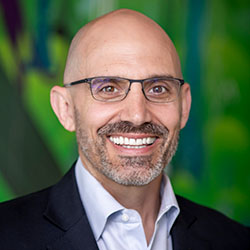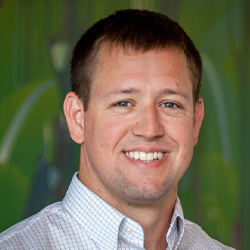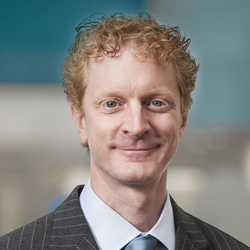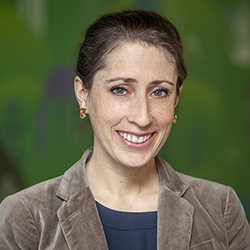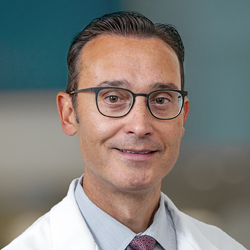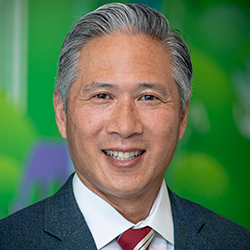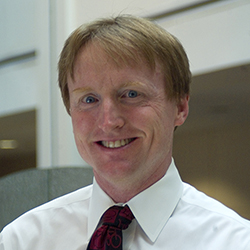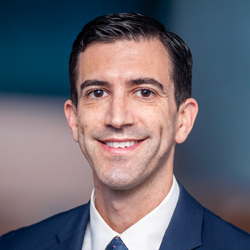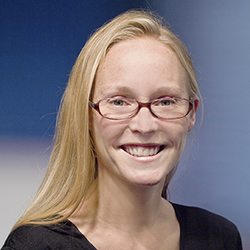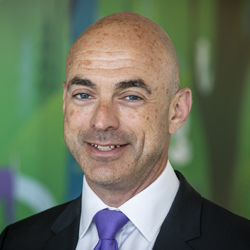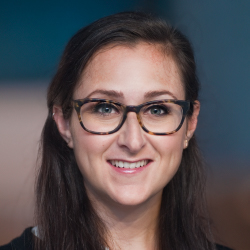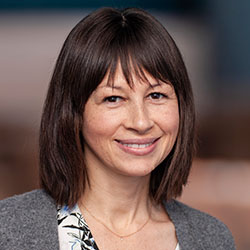Hernia Program
What is the Hernia Program?
The Hernia Program at Seattle Children’s is the only program in the Northwest to focus on diagnosing and treating children with umbilical hernias and inguinal hernias. Hernias occur when part of the intestine or other tissue bulges through a weak spot in the belly. Treatment depends on what type of hernia your child has and your child’s age. Your doctor may recommend outpatient surgery or waiting.
If your child needs surgery, you can feel confident in our expertise. Our surgeons have performed thousands of hernia surgeries on children over the years, more than any other hospital in the region. The entire team also has special training in the unique needs of children. Most hernia surgeries are done at Seattle Children’s Bellevue Clinic and Surgery Center and can usually take place within 2 weeks of a confirmed diagnosis.
Should my child get hernia surgery right away?
A hernia is not an emergency unless the tissue or intestine becomes trapped, which can cut off blood supply. This is called incarceration and needs medical attention right away. Read more about symptoms of incarcerated umbilical hernias and inguinal hernias.
- Many umbilical hernias close on their own and don’t need surgery. To give the hernia time to close, doctors generally don’t operate on these hernias until a child is 4 to 5 years old.
- Inguinal hernias do not close on their own and always need surgery.
What’s special about Seattle Children’s Hernia Program?
-
Quality care and convenience at Bellevue Clinic and Surgery Center
Most umbilical and inguinal hernia surgeries are done at Seattle Children’s Bellevue Clinic and Surgery Center.
From check-in through recovery, we put your child’s safety and comfort first. The operating suites are specially designed for children who need day surgeries and are healthy. Your child’s planned procedure is less likely to be delayed because complex emergency surgeries aren’t done here.
The induction rooms (where your child gets anesthesia), operating rooms and recovery rooms are next door to each other. This means you’ll be able to be with your child right up until they are rolled into the operating room — and again as soon as they open their eyes in a private recovery room.
Your child cannot be treated at Bellevue Clinic and Surgery Center if:
- They are 3 months old or younger
- They have a health problem that could increase their risk of side effects or complications while under anesthesia
In these cases, hernia surgery is performed at Seattle Children’s hospital campus in Seattle.
Children ages 16 to 18 who need hernia surgery will be referred to an adult surgery provider. Adult surgery providers use treatments that are different than those used in young children and are more appropriate for kids 16 years and older.
-
Back to school 1 to 2 days after surgery
Hernia surgeries take place at the Bellevue Clinic and Surgery Center on most Wednesdays and Fridays. Your doctor will tell you what to do to prepare for surgery.
On surgery day, you and your child should plan on spending about 3 hours at the surgery center, from the time you walk in the door to the time you leave. Most children can go back to school 1 to 2 days after surgery.
-
After surgery, help is available 24/7
After you get home, you’ll need to keep your child’s cut (incision) clean and dry until it heals. The surgery team will teach you how to care for the incision. You will also be given phone numbers that will connect you with hospital staff. You can call day or night with any concerns.
A surgery clinic nurse will call you 5 to 7 days after surgery for a phone follow-up. If all is well, you don’t need to return to the surgery clinic. If you or the nurse has any concerns about your child’s healing, we will set up a visit for you.
-
Pain control
During surgery, your child is given general anesthesia, which causes them to sleep without pain. Seattle Children’s also uses regional anesthesia, or regional blocks, during hernia surgeries. With a regional block, your doctor uses ultrasoundto find the nerves that supply the area being operated on. Then local anesthetics (numbing medicines) are delivered to that area through an injection or a catheter.
Regional blocks have these advantages that many parents find comforting:
- Your child will receive a lighter amount of general anesthesia.
- Most kids will have less nausea and feel more alert after surgery.
- Your child will likely need less pain medicine after surgery.
The effects of a regional block last about 6 hours. The surgeon will send additional pain medicine home with you to make sure your child stays comfortable.
-
We do only pediatric hernia surgeries
Some people think that surgeons who operate on adults are also experts in the surgical care of infants, children and teens. We don’t agree. Growing bodies are different from adult bodies. The way kids react to surgery – from anesthesia to IV fluids – is different from adults. That’s why our surgeons are all board certified in pediatric surgery.
Every member of your child’s surgical team is specially trained to work with children of every age. We consider each child’s unique condition and how best to keep that child safe.
Who is on the Hernia Program team?
Pediatric general surgeons
Doctors
Seattle Children’s has the largest general and thoracic surgery team in the region. All of our doctors are board certified or eligible for certification in pediatric surgery. Read more about our doctors’ specific areas of interest and skills.
Contact Us
Call 206-987-2794 to make an appointment, get a second opinion or, if you are a physician, to refer a patient.
Scheduling an Appointment With the Hernia Program
- Read about how to schedule an appointment at Seattle Children’s.
- If you already have an appointment, learn more about how to prepare.
- Find additional resources such as useful links and videos for you and your family.
